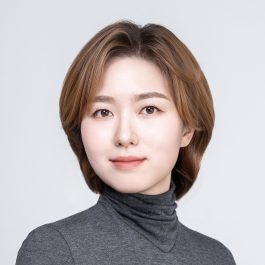
Sean Lee
MSRED Candidate 2026
Contact Info
Seoul,Korea
B.Arch, Pratt Institute
M.S., Architecture and Architectural Engineering, Seoul National University
Sean is a M.S. Real Estate Development candidate at MIT, where she explores how tokenization can democratize real estate investment, foster financial inclusion, and redefine the sharing economy. Her research focuses on integrating emerging technologies into real estate practice and developing a comprehensive framework that balances economic feasibility with environmental sustainability and social equity.
Before joining MIT, Sean gained four years of professional experience across public and private sectors. At the Seoul Institute, she researched Public-Private Partnership (PPP) and supported legislative reforms on public property management in Korea. At Deloitte, she developed corporate sustainability data platforms that embedded environmental and social metrics into business decision-making. As a Senior Analyst at the KPMG Economic Research Institute, she conducted research on macroeconomic trends, urban regeneration strategies, and the potential of blockchain to reshape asset ownership and urban participation.
With an academic foundation in architecture from Pratt Institute and Seoul National University, Sean brings a multidisciplinary approach to community development. Her undergraduate thesis, focused on community design for climate-impacted cross-border regions in Europe, won the Grand Prize at the Gwangju Architecture Competition. Her master’s thesis on public school renovations in the context of demographic changes received the Best Paper Award from the Architecture Institute of Korea.
At MIT, she is a recipient of the Sustainable Real Estate Development Action (SREDA) Fellowship for the 2025-2026 academic year. Driven by her interest in expanding access to real estate investment, her long-term goal is to reshape the narrative of sustainable urban development from a public sector’s “aid” to an attractive “investment” opportunity, empowering communities to actively engage more in constructing their futures.
